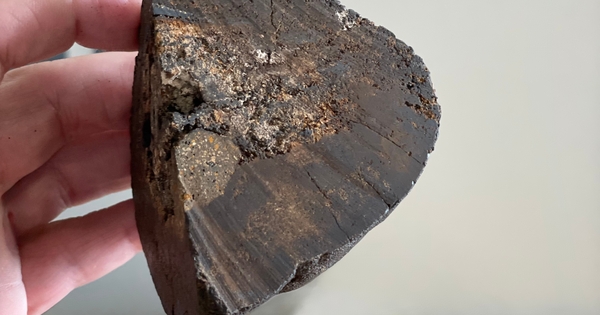A bipartisan Congressional push to revitalize America’s critical mineral supply chain is gaining momentum as lawmakers propose sweeping changes to ocean mining regulations. Representatives from coastal states unveiled legislation this week that would streamline the permitting process for seabed mining operations in U.S. territorial waters.
The Strategic Offshore Resources Act aims to reduce bureaucratic hurdles that have previously hampered domestic mining operations, creating a single reg
...
A bipartisan Congressional push to revitalize America’s critical mineral supply chain is gaining momentum as lawmakers propose sweeping changes to ocean mining regulations. Representatives from coastal states unveiled legislation this week that would streamline the permitting process for seabed mining operations in U.S. territorial waters.
The Strategic Offshore Resources Act aims to reduce bureaucratic hurdles that have previously hampered domestic mining operations, creating a single regulatory framework to replace the current patchwork of federal and state approvals. The legislation comes amid growing concerns about America’s reliance on foreign sources for minerals essential to clean energy technologies, defense systems, and consumer electronics.
“For too long, we’ve outsourced our critical mineral supply to nations that don’t share our environmental standards or security interests,” said Representative Michael Stern, a co-sponsor of the bill. “The ocean floor within our territorial waters contains vast deposits of manganese, cobalt, and rare earth elements that are crucial for everything from electric vehicle batteries to advanced weapons systems.”
The proposal would authorize the Department of the Interior to issue licenses for exploration and extraction activities across the U.S. Exclusive Economic Zone, which extends 200 nautical miles from American coastlines. This vast maritime territory encompasses approximately 3.4 million square nautical miles—larger than the combined land area of all 50 states.
Industry analysts estimate that seabed nodules in U.S. waters could contain more than 6 billion tons of manganese, 270 million tons of nickel, and 44 million tons of cobalt. These resources have taken on new strategic importance as demand for battery metals continues to surge, with the electric vehicle market expected to grow at a compound annual rate of 21% through 2030.
Environmental organizations have expressed concern about the legislation’s provisions to expedite environmental reviews. The bill would impose a 24-month deadline for completing impact assessments and would limit the grounds for legal challenges to approved projects.
“We’re talking about potentially disturbing ecosystems we barely understand,” said Dr. Elena Reynolds, marine biologist and director of the Ocean Conservation Coalition. “Deep-sea environments support biodiversity that’s taken millions of years to evolve. Once these habitats are disturbed, they may never recover.”
Proponents of the bill argue that U.S.-regulated mining would follow stricter environmental protocols than operations in countries with less rigorous oversight. The legislation includes provisions requiring companies to demonstrate that their extraction methods minimize ecosystem disruption and to establish environmental monitoring programs.
“This isn’t about choosing between the environment and national security—it’s about responsibly developing resources while maintaining the highest standards,” said Senator James Wilson, who is sponsoring companion legislation in the Senate. “The alternative is continued dependence on countries like China and the Democratic Republic of Congo, where mining practices often involve significant environmental damage and human rights concerns.”
China currently dominates the global supply chain for many critical minerals, controlling an estimated 85% of rare earth element processing capacity worldwide. This market concentration has raised alarms at the Pentagon, where officials warn that supply disruptions could threaten military readiness.
The proposed legislation follows similar efforts in other developed nations. Japan has already begun exploring seabed mining within its territorial waters, while the European Union recently announced a Critical Raw Materials Act to secure access to minerals essential for its green transition.
U.S. mining companies have welcomed the proposal, with the American Minerals Association calling it “a vital step toward supply chain security.” Industry representatives point to the potential economic benefits, suggesting that domestic mining operations could create thousands of high-paying jobs in coastal communities.
The bill faces a complex path forward in Congress, where it must navigate competing regional interests and environmental concerns. Coastal state representatives have sought assurances that revenue sharing provisions would direct a portion of mining royalties to states adjacent to extraction sites.
Market analysts note that even if passed, commercial-scale seabed mining would likely take years to develop, requiring significant technological investment and environmental baseline studies. However, the legislation could provide the regulatory certainty needed for companies to commit to long-term exploration programs.
“This isn’t an overnight solution to our supply chain vulnerabilities,” acknowledged Representative Stern. “But without a clear regulatory framework, these resources will remain untapped while we continue to import minerals from countries that don’t share our values or standards.”
The legislation is expected to receive committee hearings next month, with supporters hoping for a floor vote before the end of the current session. Its fate may ultimately depend on finding a balance between expediting resource development and ensuring adequate environmental protections—a challenge that has long defined America’s approach to resource extraction.


